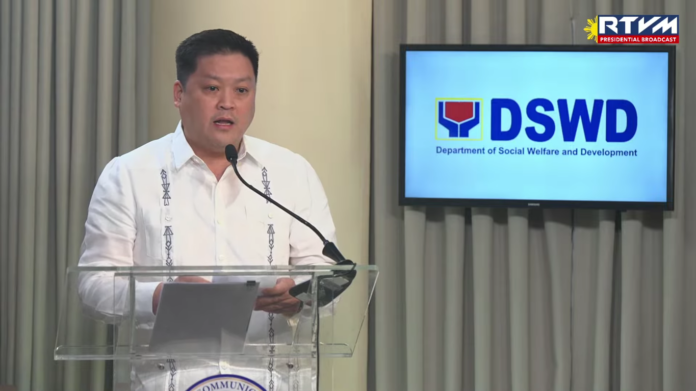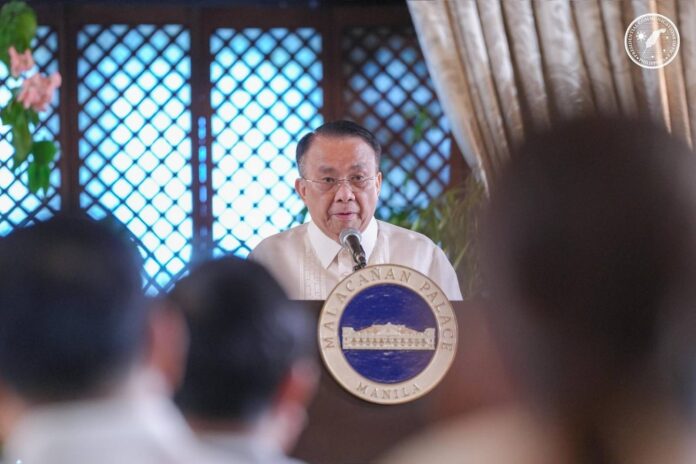THE Department of Social Welfare and Development (DSWD) has stared integrating the P20-per-kilo rice program into the government’s flagship anti-hunger initiative dubbed “Walang Gutom,” Secretary Rex Gatchalian confirmed Tuesday.
The Department of Agriculture (DA) has approved DSWD’s request for the supply of 490,000 sacks of rice from June to December.
Speaking during a media briefing, Gatchalian said the move follows President Ferdinand Marcos Jr.’s directive for agencies to coordinate efforts in addressing food insecurity.
“The President’s order is that no department on its own should act without coordination with other departments,” he said.
Gatchalian said he met Monday afternoon with Trade Secretary Alfredo Pascual and Agriculture Secretary Francisco Laurel Jr. to finalize the integration of the P20/kilo rice into the food credit system used by Walang Gutom beneficiaries.
Under the plan, roughly 1,000 accredited retailers—including Kadiwa stores and small agricultural cooperatives—will be supplied with the subsidized rice, with beneficiaries buying with their existing food vouchers.
“It’s starting now. We already gave the list to the Department of Agriculture, and they are now going to make sure that these retailers receive the affordable rice,” Gatchalian said.
The Walang Gutom program provides electronic food vouchers to identified food-poor households, allowing them to redeem basic goods from designated outlets.
The inclusion of P20-rice aims to stretch further the value of these credits, providing greater food security for low-income Filipinos.
The timeline for full implementation depends on logistical rollout, but Gatchalian confirmed that coordination with the DA was already underway.
The rice allocation will support the DSWD’s disaster response and feeding programs for vulnerable communities across the country.
“We need 35,000 sacks of rice each month to keep our repacking hubs in Pasay and Cebu running. We’re grateful that the DA, through the National Food Authority (NFA), has committed to this steady supply in the months ahead,” Gatchalian said.
The DSWD is among several government agencies that regularly source rice from the NFA for their social programs.
Laurel said the DA is also grateful to the DSWD for helping ease its inventory by taking a significant portion of DA’s rice stocks.
“This frees up space in our warehouses and allows us to purchase more palay from local farmers at fair prices,” Laurel said.
The NFA currently holds over eight million sacks of rice, nearing full storage capacity.
Offloading rice to the DSWD and to the P20-rice program ensures continuous procurement from farmers while providing food relief to low-income households.









